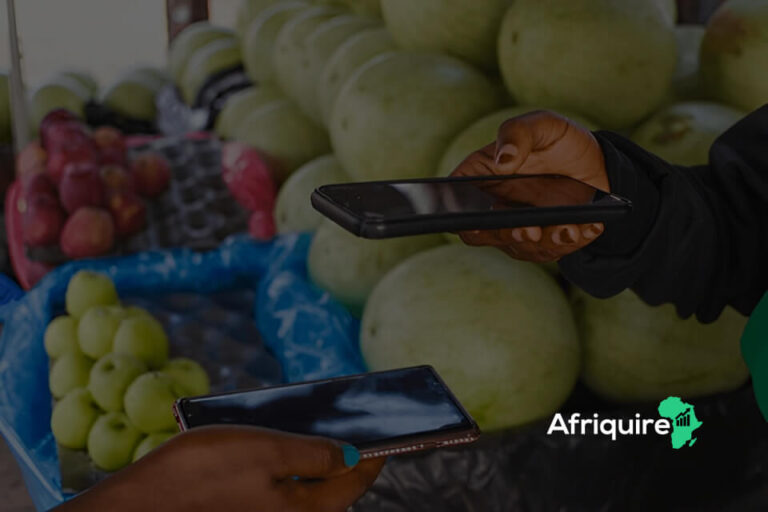Introduction
You know the saying, “Necessity is the mother of invention?” These sayings show how inventors create solutions when they identify social problems. Case studies of successful tech innovation in Africa reveal how young Africans embrace technology to tackle real-world challenges.
The creation of apps and online platforms in Africa proves technology’s transformative power. Case studies of successful tech innovation in Africa showcase how creativity and technology improve lives. By examining these innovations, we see their impact on society. These success stories highlight Africa’s potential as a tech leader. With the right ideas and skills, Africa is set for a remarkable technological future.
Introduction to the Tech Ecosystem
The tech ecosystem refers to a network of people, companies, organisations, software, data, systems and services that work together to develop and improve technology. They collaborate to create innovative products and services. Each member of the ecosystem has different parts, like creating innovative gadgets, apps, and websites, while consumers incorporate these tools into their daily routines.
In this technology environment, several startups are coming up with brilliant ideas. They create ideas and products that simplify lives. Large companies also support smaller companies by providing funding, mentorship, and alliances. Universities also play a vital role in offering technology education and conducting research to uncover new ideas. The students at these institutions could be the next generation of tech innovators!
Collaborations can lead to incredible advancements. See how smartphones have revolutionized communication and internet access. Collaborations help discover better ways to execute tasks using technology. If you develop an interest in technology—creating programs, learning to code, or technology in general—you should get involved in the tech space. This environment not only fosters the growth of your skills but also offers opportunities for personal and professional development as you create and welcome new ideas.
Overview of Tech Innovation Landscape in Africa
Growth of the Tech Sector in Africa Over the Last Decade.
In the past ten years, Africa’s tech industry has experienced significant growth. The continent has integrated technology into its daily life, transforming the way people live and work. More innovators are emerging to solve everyday problems, and young entrepreneurs are launching startups that produce valuable products like mobile applications, online shopping sites, and digital payment systems, further enhancing this tech-driven lifestyle.
Let’s look at Jumia, for example. It’s an e-commerce platform that has made shopping easier for Africans. Another example is Flutterwave. They have helped businesses by making payment processing easier. These startups have gained recognition for addressing genuine issues.
Investors from all over the world have recognised this technological surge. They have seen the potential in African startups and have started to finance them. This investment will facilitate the growth of startups and consequently generate more job opportunities.
African governments are also playing an essential role in promoting technology by improving internet access, establishing tech centres, and implementing favourable regulations for businesses. They understand how technology may boost economic growth and improve quality of life.
Basically, Africa’s technology sector is rapidly evolving, offering promising opportunities for the youth. With an increase in companies, investment, and government support, Africa’s technological future appears to be quite bright! Who knows? You could be one of the key players in the following African digital startup!
Key Players: Startups, Investors, and Governments.
Africa’s tech industry is experiencing rapid growth and it is the result of a collaborative effort among three key players: startups, investors, and governments.
Startups: Startups are newly formed companies that bring fresh ideas to the market. They create innovative technology products or services aimed at addressing real-world challenges. For example, some startups design applications that connect students with online learning opportunities or apps that connect people with potential jobs. These emerging companies are brimming with energy and creativity.
Investors: Investors are individuals or organisations that provide funding to startups because they can see their potential. They project that these startups will grow and yield profits in the future. Investors have made it easy for startups to scale and expand their reach.
Governments: Governments play a crucial role by creating supportive environments and offering various forms of assistance to help tech companies flourish. They can implement policies that simplify startup business operations, provide technology grants, or invest in internet infrastructure.
When these three players come together, the outcome would be out of this world. There would be increased employment, improved quality of education, and innovative solutions to challenges through technology. With a strong community of investors and proactive governments backing them, startups across Africa can continue to grow and make a significant impact on lives.
Tech Hubs and Funding
- Role of Innovation Hubs (e.g., Nairobi, Lagos, Cape Town): Innovation hubs have developed all over Africa, in places like Nairobi, Lagos, and Cape Town. These are centres where they create new ideas and technologies. These hubs provide all the support that young entrepreneurs and tech enthusiasts need by offering office space, training, and access to experienced mentors. Nairobi’s innovation hub, “Silicon Savannah,” has brought a wave of startups, leading to the city gaining its dynamic tech scene.
- Another piece of evidence of a growing innovation hub is in Lagos. Lagos is quickly evolving into a thriving tech community where different individuals rub minds together to create applications and services that not only address everyday challenges but also shape the future. Cape Town has a nurturing ecosystem that fosters connections among like-minded individuals, encouraging collaboration and the exchange of ideas. This collaboration not only generates jobs but also stimulates economic growth and attracts investments from both local and international sources.
- Trends in Venture Capital and Crowdfunding for African Tech: Funding is essential to the expansion of technology in Africa. Venture capital firms are increasingly investing in African entrepreneurs, realising the continent’s enormous potential. For instance, [insert successful African tech startup] received [insert amount] in funding from [insert venture capital firm]. Furthermore, crowdfunding is increasing in popularity, allowing ordinary people to contribute small sums to support new ideas. This technique enables entrepreneurs to acquire capital without relying primarily on banks or huge investors. The fast expansion of innovation hubs and investment opportunities in Africa offers exciting prospects that appear to shine even brighter in the future.
Sectors of Focus
Dominant sectors: Fintech, Agritech, Healthtech, and Edtech.
With the speed of technological advancements, sectors like fintech, agritech, health tech, and edtech are being disrupted.
Fintech is a combination of two words—financial and technology. The term is self-explanatory. It refers to the incorporation of technology into the finance sector, simplifying financial processes. This includes money transfers, savings, and bill payments without having to go to a bank.
Agritech refers to using technology to improve and advance agricultural practices. This helps farmers monitor their crops, keep records, and make farming decisions. It also encourages an increase in food production and harvest with reduced labour and time.
Healthtech, as the name implies, is the integration of technology into healthcare services. The introduction of telemedicine means that patients can have an entire team of medical professionals at their fingertips, making access to healthcare easier.
Edtech encompasses the application of technology in the educational sector. With online classes, educational apps, and virtual tutoring, students can learn virtually anywhere, broadening access to education, even in isolated regions.
These sectors play a crucial role in addressing real-world challenges and enhancing quality of life. As technology continues to evolve, they are poised to expand further, creating more opportunities globally.

In-Depth Look at Key Success Stories
Case Study 1: M-Pesa (Kenya)
- How Mobile Money Revolutionized Financial Inclusion: M-Pesa is a mobile money service that started in Kenya in 2007. It changed how people manage their finances by allowing them to send and receive money anytime through their mobile phones. Before M-Pesa, many Kenyans, particularly those in rural areas, struggled to access banking services due to distance and cost. Now, with M-Pesa, individuals can quickly transfer money, pay bills, and save, which has significantly improved financial management for millions, especially women and small business owners.
- Key Partnerships and Scalability: A key factor in M-Pesa’s success has been its partnerships. Safaricom, the company behind M-Pesa, collaborated with banks and local businesses to ensure that the service was widely accessible. These partnerships facilitated easy money transfers, purchases, and bill payments. M-Pesa’s influence extends beyond Kenya, as it has expanded into other African and non-African nations, thanks to its user-friendly service. This growth and adaptability have established it as a model for financial inclusion worldwide. By applying technology to solve real-life challenges, M-Pesa has demonstrated that innovation can drive meaningful change and enhance people’s lives.
Case Study 2: Andela (Nigeria)
- Empowering African Developers for Global Tech Markets: Andela was established in Nigeria in 2014 with the goal of helping young Africans develop skills in software development. The organisation connects these developers with tech companies worldwide for remote employment on various projects. This allows African developers to work on globally recognised projects that offer competitive pay while remaining in their home countries. Andela focuses on training young individuals to excel in coding and software development, providing them with a significant advantage in the competitive tech job market.
- Challenges Faced and How They Were Overcome: Andela faced several challenges. The first was public ignorance. Many young people were unaware that they could work remotely with international companies. Additionally, it was challenging to find or create effective training programs that would equip them with the necessary technical skills for these opportunities.
To address these issues, Andela launched campaigns to raise awareness about tech careers and remote work. They also developed a comprehensive training program that not only teaches technical skills but also emphasises communication and teamwork, which are essential for collaborating with teams around the world. Today, Andela has cultivated a network of skilled developers who are making substantial contributions to the global technology industry, demonstrating that Africa is home to a wealth of talent eager for international opportunities.
Case Study 3: Zipline (Rwanda)
- Using Drones for Medical Supply Delivery in Remote Areas: Zipline is an incredible service based in Rwanda that uses drones to deliver medical supplies to hard-to-reach areas. It began operations in 2016 with the goal of ensuring that hospitals and clinics receive what they need as quickly as possible. In Rwanda, many roads are not in excellent condition, which can make deliveries by car quite time-consuming. That’s where Zipline comes in. They have flying drones that can swiftly transport urgent medical supplies like blood, vaccines, and medicines to health centres.
- Impact on Healthcare Access and Response Times: Before Zipline, some health facilities had to wait for hours or even days for crucial supplies. This created significant challenges, especially during emergencies. Now, thanks to drones, deliveries occur in just a few minutes. This means hospitals can attend to patients more quickly, ultimately saving lives, particularly in critical situations like a need for blood transfusion. Zipline has significantly improved the speed and reliability of healthcare in Rwanda. It has demonstrated how technology can benefit those in need and has inspired similar initiatives in other countries. With Zipline, healthcare is advancing, and lives are being saved, showcasing the accurate impact technology can have!
Case Study 4: Kobo360 (Nigeria)
- Solving Logistics Challenges with Technology: Kobo360, a Nigerian company, is reshaping the way goods are transported across Africa. Since its inception in 2017, the company has been connecting truck owners with businesses in need of product transportation. Prior to Kobo360’s arrival, the logistics sector in Nigeria and many other African nations grappled with issues such as delays, high costs, and inadequate delivery tracking. Kobo360 has effectively addressed these challenges by introducing a user-friendly digital platform that allows businesses to book trucks and monitor their deliveries in real time, giving them a sense of security and control over their shipments.
This innovation is incredibly beneficial as it streamlines the process, making it faster and more cost-effective. Companies can now track the exact location of their goods and estimate their arrival times. This improvement enhances inventory management, helping businesses save money and reduce losses.
- Enabling Efficient Supply Chains Across Africa: Kobo360, operating not just in Nigeria but throughout Africa, in places like Benin, Ghana, Uganda, and more, is a prime example of how technology can enhance efficiency in logistics. By establishing more efficient supply chains, Kobo360 ensures that goods reach markets more quickly and at lower prices. This positively impacts the economy, as businesses can receive products promptly and improve their sales, fostering growth. Kobo360’s innovative use of technology to tackle significant challenges in the logistics sector is a testament to its potential to inspire and drive change.
Lessons Learned from Successful Tech Innovations
- Adapting to Local Contexts
When creating new tech solutions, it’s crucial to tailor them to the local environment. A deeper understanding of a region’s culture, economy, and laws can significantly influence the success of your tech project.
First, let’s consider culture. Different regions have unique needs and practices. For instance, an educational app might thrive in one country, but if it overlooks the local language or preferred learning methods, it may not gain traction. Being aligned with the culture ensures that the technology is both relevant and embraced by users.
Next, we have the economy, which is a key factor. It’s essential to assess whether the target audience can afford the new technology. If the cost is prohibitive for most, adoption will be limited. Thus, understanding the local economic landscape is vital for developing cost-effective solutions.
Lastly, each country has its own rules and laws regarding technology use. There may be specific regulations about data protection or restrictions on what tech companies can do. Familiarity with these legal frameworks helps prevent complications and facilitates smoother project implementation.
In summary, a solid grasp of the local culture, economy, and legal environment is essential for making technological innovations more effective and beneficial for those who need them.
- Scalability and Sustainability
Many organisations are increasingly focused on sustainably achieving rapid growth. Rapid growth offers a significant opportunity to generate more resources and expand market reach. However, if an organisation pursues growth too quickly without considering its long-term success, it may face negative consequences, such as environmental harm or losing touch with the local community.
Balancing these concerns is essential when organisations create sustainability-focused plans. This involves investing in the community and ensuring that growth does not negatively impact the environment or society. For example, a company can adopt eco-friendly practices to reduce waste and use renewable energy sources. Additionally, engaging with local residents helps organisations understand their needs and ensures that the community benefits from the organisation’s growth.
Organisations must also regularly assess the impact of their activities. By evaluating what works and what needs improvement, they can ensure that their growth aligns with their values and mission. Ultimately, growth should be both rapid and responsible. By focusing on long-term success, sustainability, and longevity, organisations can create meaningful and lasting change.
- Collaboration and Partnerships
Public-private partnerships, a collaboration between the government and private companies, are instrumental in providing solutions to societal problems. These partnerships are particularly effective as they bring together the strengths of both sides. The government’s resources, such as land, laws, and support, are complemented by the private companies’ financial backing, skills, and technology. It’s important to note that the private companies’ contribution is significant, as it plays a crucial role in the success of these partnerships.
For instance, if the government wants to improve healthcare or education, it can then partner with technology companies to use technology, such as mobile apps or online platforms, to help people gain better access to doctors or learning materials. With the government’s resources and the innovation of the tech company, they can build projects that might be too expensive or complicated for either of them to do alone. These partnerships also make sure that everyone stays responsible and that the projects are helping the people they were really meant to help, motivating all involved to engage fully in their success.
- Challenges and Resilience
Even though there are a lot of good reasons to use public-private partnerships, several problems need to be overcome with this approach. First of all, most places, mainly rural or underdeveloped areas, have lousy infrastructure. For example, there are places without good roads, electricity, or internet. This might be an uphill task for any project to thrive, even if the idea is brilliant. This calls for increased investment by governments and companies in improving infrastructure that will support such projects, such as road building or provision of reliable power.
Another challenge can be the funding. Most social projects have to be very expensive; finding enough funds can, therefore, be a hassle. Sometimes, governments lack the money to pay for everything, and private companies may also not want to take all that cost. In order for this to be solved, organizations can look for other means of raising money, getting donations from global groups, for example, or attracting investors who are interested in making a difference, not just profits.
Finally, policies and rules can get in the way. Laws might be unhelpful toward newer or more innovative kinds of solutions. In developing constructive partnerships, it’s essential for everyone, including governments, businesses, and social enterprises, to come together and adapt to the problems. Despite the challenges, it is possible for public-private partnerships to work if we all stay focused on the goal. By doing so, we can make lasting changes that benefit communities all across Africa.

The Impact of These Innovations on Local and Regional Economies
Economic Growth and Job Creation
Technology is significantly affecting the economies of African countries. It’s helping to create jobs, improve services, and improve people’s lives. Let’s look at how tech innovations are making a difference.
- Job Creation Through Tech Startups
- Better Availability of Services: Healthcare, Education, Finance
- Mobile health apps and e-learning platforms.
- Regional Trade and Collaboration
- Direct and Indirect Job Opportunities from Tech Startups: New technology businesses are growing quickly across Africa. These businesses are creating many jobs. For instance, Andela and Flutterwave, among other startups, hired thousands of people to work as software developers, marketers, or managers. These jobs are great because they open the way for many to develop themselves in tech-a trending industry that has many perspectives.
However, the impacts of such startups are by no means confined to direct employees. They play a vital role in the job creation of other industries as well. As a startup grows, it requires services such as transportation, supplies, and advice. This, in turn, creates jobs for other companies, contributing to the development of the local economy.
- Contributions to GDP Growth in Tech-Driven Sectors: Technology is also contributing to the growth of many African economies. The more people in other sectors, such as agriculture, health, and education, use technology tools, the more productive they become. Take, for instance, Kenya’s mobile money service M-Pesa. M-Pesa has been able to let people share and receive money with or without an account via their phone. Since then, it became very easy for people to handle or manage their financial issues, while the economic growth of the country received a boost due to the delivery of financial services to several people.
Social Impact
- Improved Access to Essential Services (Healthcare, Education, and Finance): Technology is increasing accessibility to essential services. In healthcare, online platforms connect patients with doctors without having to travel long distances. This brings healthcare closer to home for people living in the countryside. E-learning platforms have provided students with the advantage of learning from the comfort of their homes, which is a great help for those who cannot find good schools nearby. Money management is also improving, thanks to financial technology. Mobile banking, a service designed for inclusivity, has provided an avenue for those who have never owned a bank account to save money, make payments, and even take loans. This facilitates starting business ventures and improving lives with ease.
- Bridging the Digital Divide and Empowering Marginalized Communities: Most African countries have a gap between the well-to-do and less-privileged in terms of technology access. This is termed the digital divide. However, tech innovations are bridging this gap. An example is solar-powered internet hubs. These are free or cheap internet-providing spots in places where electricity and internet access are hard to find. By making the Internet more accessible, people in rural or poor areas can make use of online services such as education, healthcare, and banking. This helps level the playing field, giving everyone the chance to benefit from technology.
Regional Integration
- Facilitating Cross-Border Trade and Collaboration Within Africa: Technology is bridging the gap in ways that businesses are trading and working with one another across borders on the African continent. For example, platforms such as Kobo360 link companies with transporters to have goods moved from one country to another. Technology aids the collaboration of businesses in such a way that they share ideas and resources online. This has helped in the growth of Africa’s economy, with businesses becoming increasingly connected through the continent.
- Strengthening Africa’s Position in the Global Tech Ecosystem: As African countries invest in tech, their interest in the global village of technology increases. Economies like Nigeria and Kenya welcome international investors seeking to be part of the booming African market. This allows more opportunities for local companies to present their ideas and products to a global market. The better the progress of Africa’s tech, the better its contribution to rebalancing the global economy and developing more jobs in the area, creating a positive impact on the local community.
Frequently Asked Questions
1. How has technology impacted education in Africa?
Technology has made education more accessible. Through platforms like Eneza Education learning resources are accessible to students in remote areas.
2. What role do startups play in African tech innovation?
Startups bring fresh ideas and solutions to local problems. Many young entrepreneurs are creating apps and services that cater specifically to African needs, driving economic growth and job creation.
3. Are there challenges facing tech innovation in Africa?
Yes, there are challenges like limited internet access, funding issues, and regulatory hurdles. Many innovators are finding ways to overcome these obstacles by collaborating with governments and international partners to create supportive environments.
4. How can young people get involved in tech innovation?
Young people can start by learning coding or digital skills through online courses or local workshops. Joining tech communities or hackathons can also help them connect with others.
5. What is the future of tech innovation in Africa?
The future looks bright! With increasing smartphone penetration and internet access, more people will be able to participate in the digital economy.
Conclusion
The case studies of successful tech Innovation in Africa show that tech innovation is really changing faces in Africa in amazing ways. From mobile money like M-Pesa to online education through Eneza Education, these innovations solve real-life problems and create opportunities for people.
Though there are challenges like infrastructure and funding, governments and organizations are supportive of the growth of technology to help young Africans achieve their dreams. The future of technology in Africa is bright, and with the right ideas, it can improve living standards.



